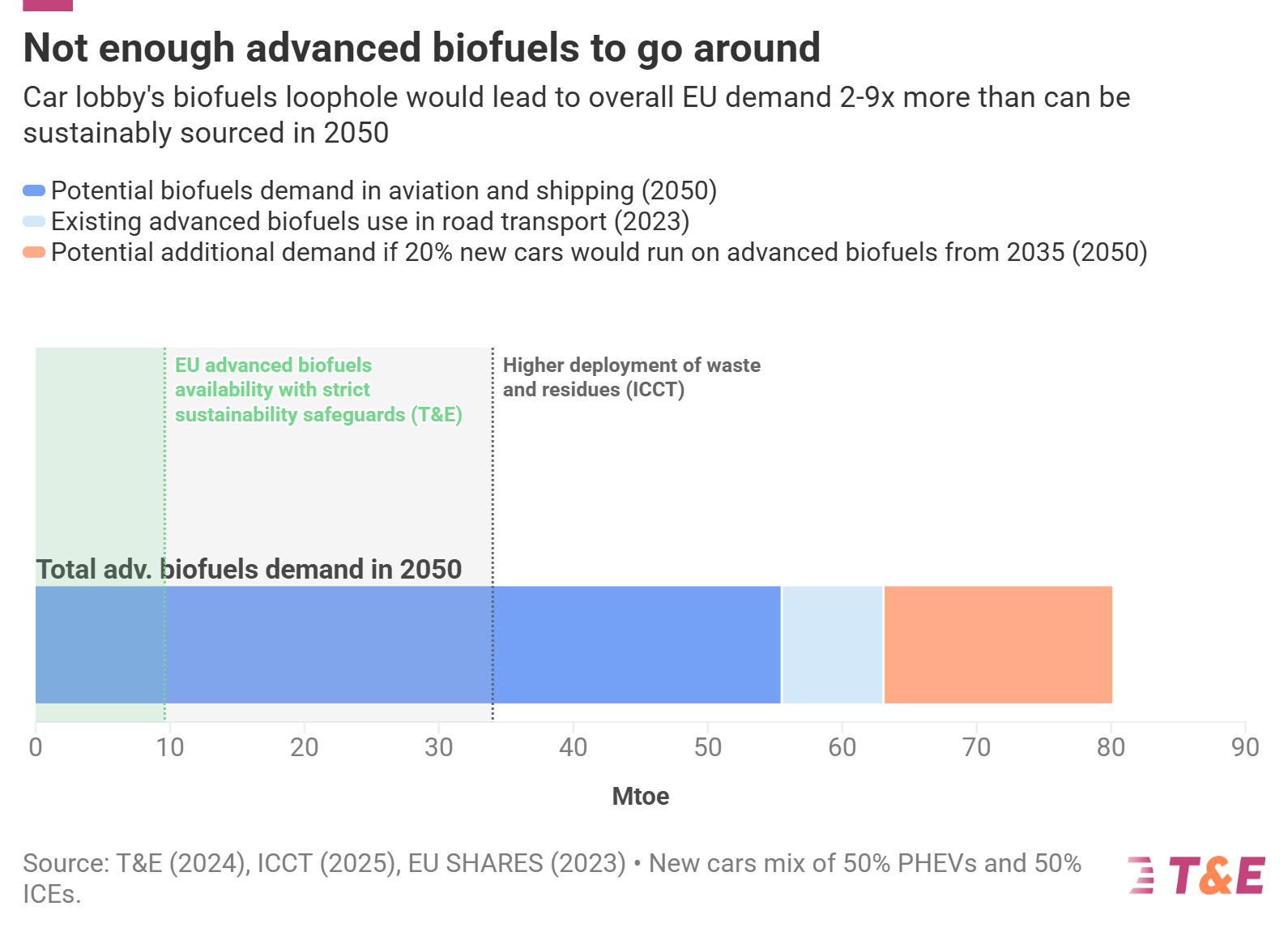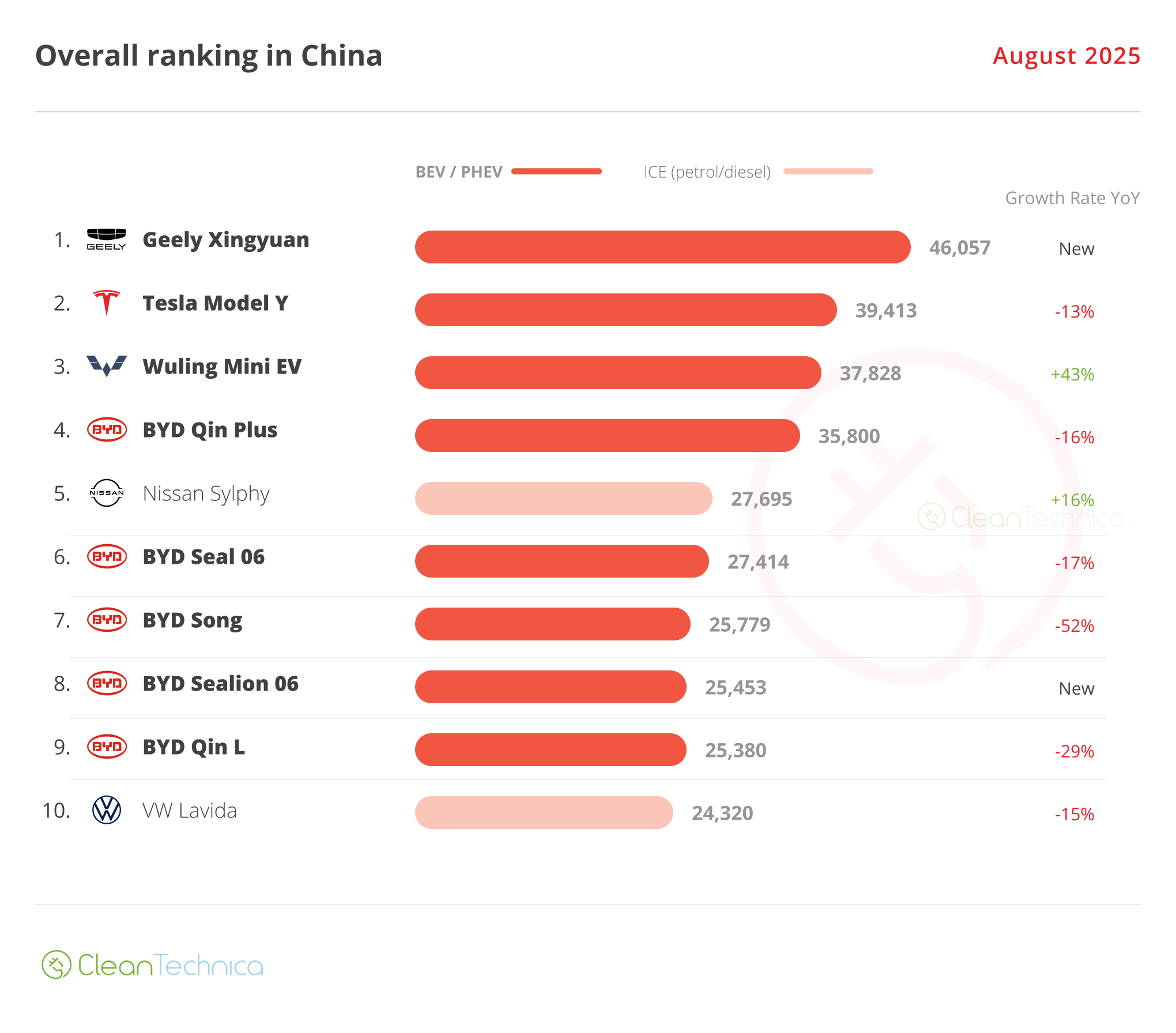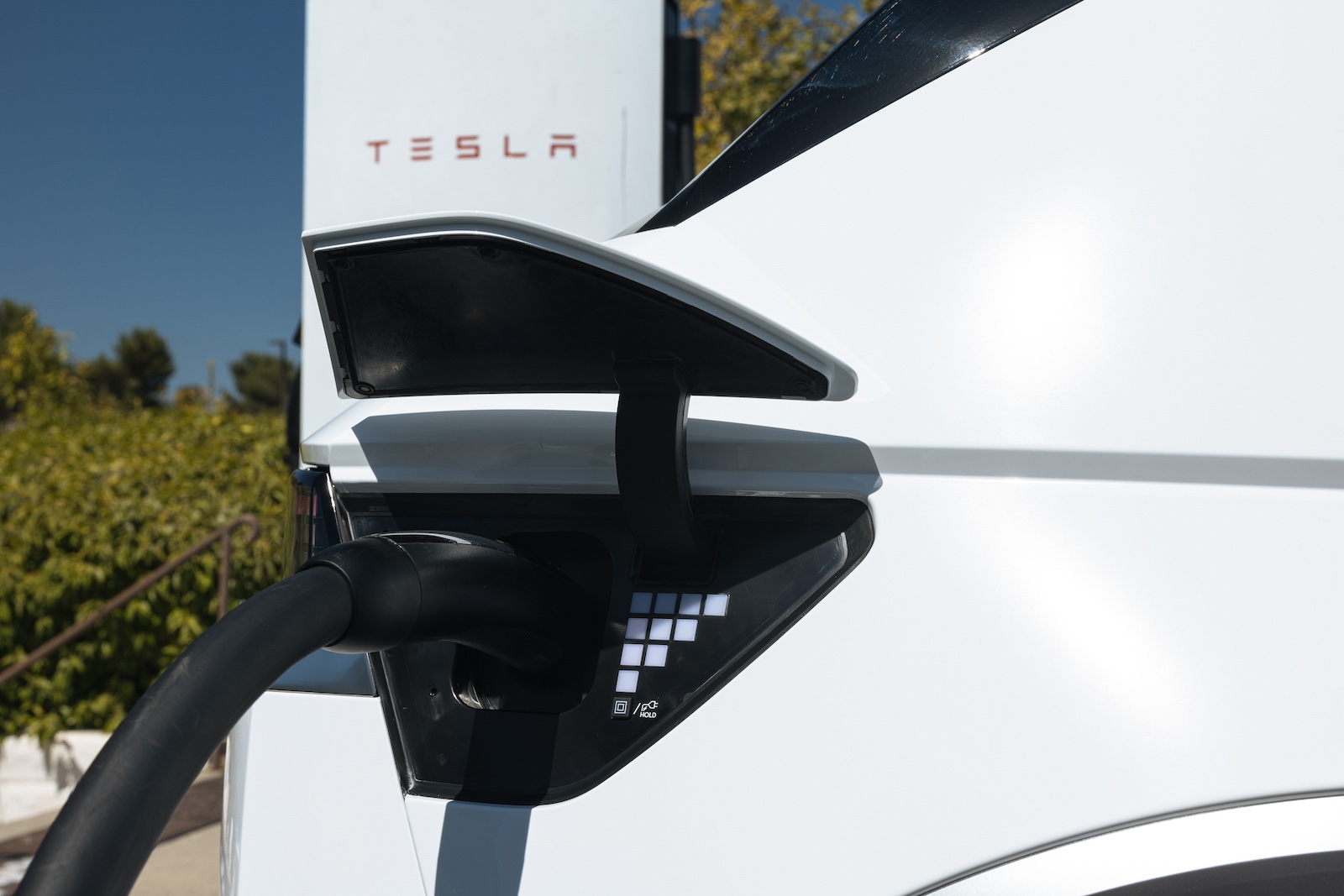Support CleanTechnica’s work through a Substack subscription or on Stripe.
Car, aviation and shipping industries would require 2-9 times the advanced biofuels that can be sustainably sourced in 2050.
Inserting a biofuels loophole in the EU 2035 cars law could see a huge spike in demand for biofuels from waste feedstocks like animal fats, used cooking oil and palm oil by-products, new T&E analysis finds. A car running on animal fats, for example, would require the equivalent of 120 pigs a year. This additional demand could lead to cars, planes and ships consuming two to nine times more advanced biofuels than can be sustainably sourced in the future.
The EU is under pressure from the fuels and cars industries to allow new combustion engines running on biofuels to be sold after its 2035 deadline for zero-emission cars. This loophole, which is also supported by the Italian government, would see cars gobble up the very limited supplies of sustainable, advanced biofuels and make it more difficult to green hard-to-decarbonise sectors like aviation. Based on current European targets, planes and ships alone will require roughly double the amount of advanced biofuels than can be sustainably sourced in Europe — in the most optimistic scenario — in 2050.
Lucien Mathieu, cars director at T&E, said: “The push for biofuels is absurd. Europeans can’t eat enough pork or fries to sustainably run even a fraction of Europe’s cars let alone its ships and planes. Why are the car and oil lobbies flogging non-solutions when we have a ready technology in electric cars? This is nothing but a delay tactic that will leave Europe uncompetitive in the global EV market.”
Advanced biofuels such as waste-based fuels are not scalable. Europe already imports more than 80% of its used cooking oil from places like China and Malaysia. Animal fats are one of the most popular waste feedstocks. Already today, European cars use 1.3 million tonnes of animal fats per year — equivalent to 200 million slaughtered pigs. For every new car running on animal fats, around 120 pigs would be required a year, the analysis finds. Alternatively, a new car running on used cooking oil would need 25 kg of fries per day.
A huge gap between the demand and the availability of sustainably sourced biofuels will also increase Europe’s dependency on imports. Currently, T&E estimates that 60% of Europe’s biofuels — including crop-based and advanced — are imported from third-countries. With the extra demand for cars created by a biofuels loophole, this could rise to 90% in 2050, the analysis finds.
A greater dependency on biofuels imports would also increase the risk of fraud where virgin palm oil and other edible vegetable oils are passed off as waste oils. Previous investigations by T&E have shown alarming mismatches in waste biofuel imports into Europe, strongly suggesting fraud is occurring. For example, Europe imports three times more used cooking oil from Malaysia than can be collected in the country. In another investigation, T&E showed that Europe imports more palm oil mill effluent — a palm oil byproduct — than can be collected globally.
Last week the German car lobby VDA joined with automotive supplier association CLEPA and 28 fuels companies and associations to tell the EU Commission that vehicles running on biofuels should be treated as zero emissions after 2035.¹ The European carmaker association ACEA has called for a “pragmatic implementation” of rules allowing new cars powered by carbon neutral fuels to be registered after 2035.²
Notes to editors:
¹ “Vehicles running exclusively on renewable fuels, must be recognised as zero-emission vehicles… Those fuels shall include renewable and/or synthetic fuels, such as biofuel, biogas, biomass fuel, renewable liquid and gaseous transport fuel of non-biological origin (RFNBO) or a recycled carbon fuel (RCF).”
Joint letter by VDA, CLEPA and fuels companies and associations to the EU Commission: https://www.vda.de/dam/jcr:c2010722-0e33-43f3-b1d1-c6d17ab07835/2025_Joint%20Statement_ENG.pdf?mode=view
² ACEA position paper, October 2025, page 8. ACEA-policy-paper-EU-regulatory-framework-for-the-decarbonisation-of-road-transport.pdf
News release from T&E. Featured image by Marion Streiff from Pixabay.
Sign up for CleanTechnica’s Weekly Substack for Zach and Scott’s in-depth analyses and high level summaries, sign up for our daily newsletter, and follow us on Google News!
Have a tip for CleanTechnica? Want to advertise? Want to suggest a guest for our CleanTech Talk podcast? Contact us here.
Sign up for our daily newsletter for 15 new cleantech stories a day. Or sign up for our weekly one on top stories of the week if daily is too frequent.
CleanTechnica uses affiliate links. See our policy here.
CleanTechnica’s Comment Policy





